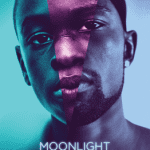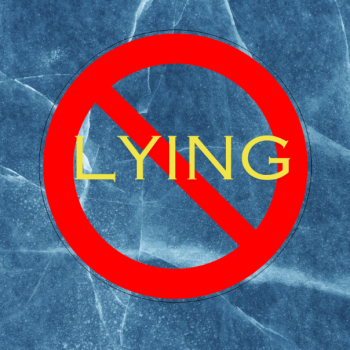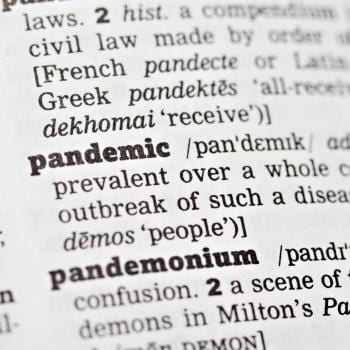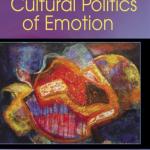
She exchanged the perfection of control for the perfection of never-ending vulnerability. The only end of this is utter exhaustion and inability to function.
I put down Comfort Detox by Erin M. Straza (IVP Books, 2017) with a sense of relief. I had finished the book.
With never ending energy, Straza exhorted the reader to leave behind the worship of comfort. The primacy of comfort leaves us shielded and padded and insulated from the raw needs of a broken world. We become unable to embrace the discomfort of vulnerability, both to others and to God.
I agree with her premise. Frankly, I’ve written much of the same myself. I’ve long been aware that needing to be too comfortable does cut us off from others and often from ourselves as well. But I was relieved when I finished the book because it left me emotionally exhausted. The constant imploring to be always vulnerable to the needs of others wore me out.
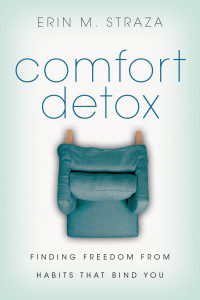 Having said that, I am not the book’s intended audience. Straza writes primarily to the suburban Christian woman, those caught in the externals of living the perfect and controlled life. Unfortunately, she exchanged the perfection of control for the perfection of never-ending vulnerability. The only end of this is utter exhaustion and inability to function.
Having said that, I am not the book’s intended audience. Straza writes primarily to the suburban Christian woman, those caught in the externals of living the perfect and controlled life. Unfortunately, she exchanged the perfection of control for the perfection of never-ending vulnerability. The only end of this is utter exhaustion and inability to function.
Christians: masters of guilt trips
What I read in her book seemed typical of Christian women of the evangelical world. I know it well. I spent many years there. They cannot just relax and own their humanness. Instead, they live as the world’s masters of guilt trips. I found little inability to receive grace and trust that God is bringing grace to others.
But I’ve gained, I hope, some wisdom with advancing age. I’ve also learned to honor who I am as a person and no longer to expect to be able to save the world.
Near the end of the book, Straza, accidentally I suspect, landed on the core problem:
I have been reading historical biographies on our country’s founders the past few years. I love the history and artifacts, the peek into daily life for people who lived several hundred years ago. Something especially curious is the smallness of community then as compared to today. It was not uncommon in the eighteenth century for people to have contact with just a few dozen people, including family members, over the course of their entire lives.” (P. 156, Comfort Detox)

Then, most people had small worlds and knew well everyone around them. Most lived in villages with multiple connections, leading to less likelihood of people falling between the cracks, unheard or unheeded. Dan Buettner speaks beautifully to this dynamic in the well-researched book, The Blue Zones, Second Edition: 9 Lessons for Living Longer From the People Who’ve Lived the Longest.
The loss of the village
Now we know too many people, but mostly superficially. We can’t possibly meet all the needs around us. With social media hounding us from every corner, many have hundreds of people with whom we have at least some contact on a regular basis. To feel all that is going on in every corner will end up leaving most paralyzed, sucking their thumbs and longing for a padded room.
Multiple times, Straza referred to her introversion and need for quietness and uninterrupted time. She seemed to see her basic personality style as a liability rather than recognizing it as her strength, one that should be cherished, not discarded.
I believe Straza mourns the loss of the village. She would not be alone. Our world grew too big for any to handle.
This loss may be part of the current move in the US toward isolationism, wall-building, and exclusion of refugees. We are simply overwhelmed. We have traded the intimacy of healthy vulnerability and human connection for the knowledge that everyone is suffering. With that knowledge, helplessness to fix anything leaves us with a growing sense of depression and desperation.
So we turn away from everything.
Straza’s book asks us to stay vulnerable to the suffering. I appreciate the love of the other and the tenderness of soul that permeates her work. However, I think many of us would be better off to narrow our worlds to areas where we can be truly useful.
Let us not forget that God is still at work in the world. None of us eat the whole elephant of injustice and suffering. But we can all nibble away at our particular areas and trust that others are doing the same.



